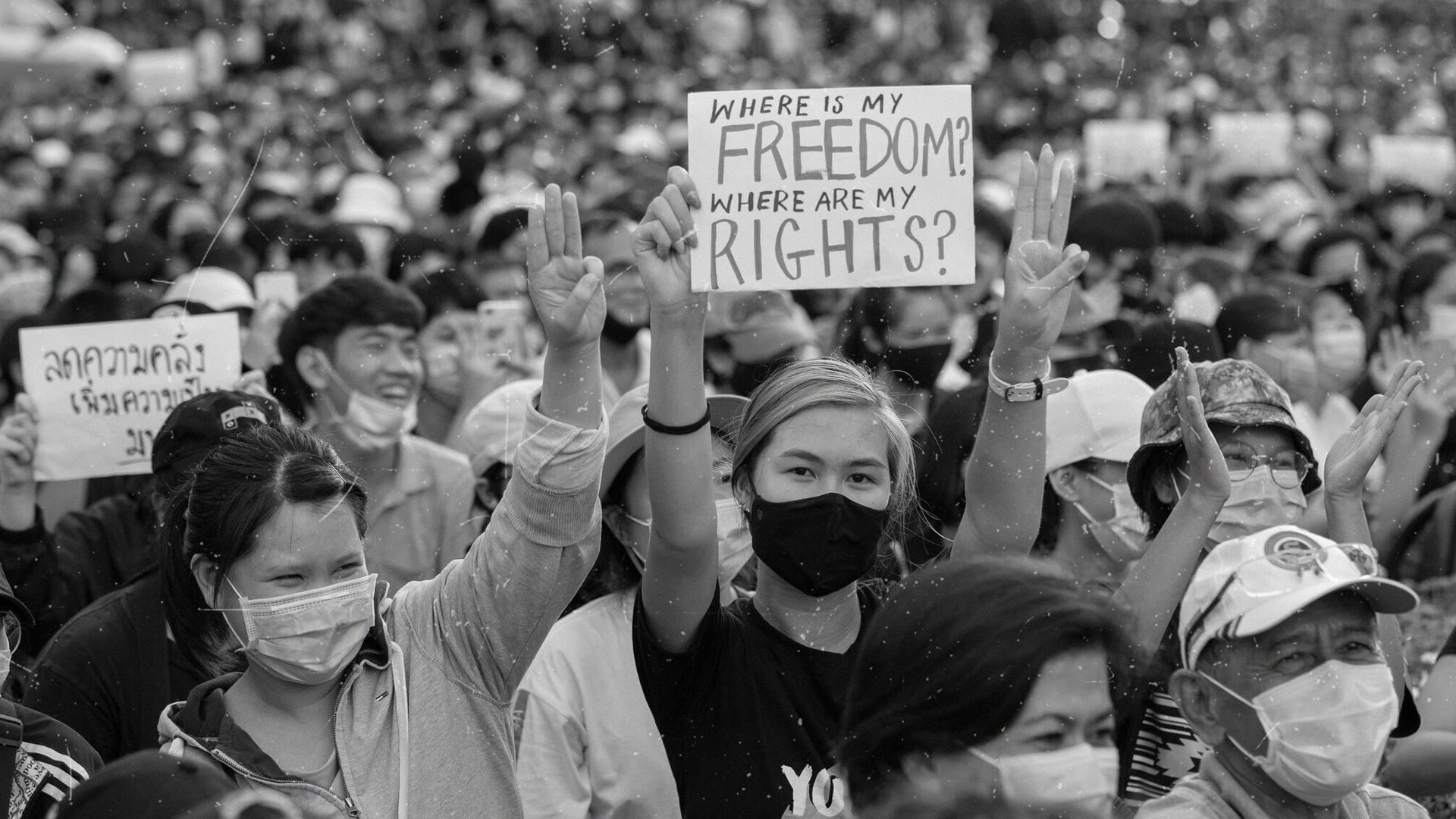The spontaneous audio chat app Clubhouse is providing a safe space for pro-democracy advocates to question Thailand’s powerful monarchy.
In a nation where standing against the monarchy can lead to 47 years behind bars, Thai citizens eager to discuss politically taboo subjects are now flocking to emerging chatroom app Clubhouse.
Originally billed as a bougie social media platform where everyday people could join in conversations with celebrity and influencer A-listers, Clubhouse has instead become an overnight hit with Thai activists. Protesters are using the platform to freely discuss Prime Minister Prayuth Chan-Ocha’s totalitarian regime, as well as co-ordinate future demonstrations.
In almost identical fashion to China, where Clubhouse also became a battleground between pro-democracy forces and oppressive government rulings, authorities in Thailand have threatened to block access to the app following a massive surge in popularity – particularly among a growing student cohort calling itself The Ratsadon.
Predictably, such actions have served only to stoke more interest in the app, and anti-senate demonstrations have trended on Twitter throughout the week.
#ดีอีเอส เตือน ใช้แอปฯ "Clubhouse" ด้วยความระมัดระวัง อย่าละเมิดสิทธิ์ผู้อื่น ไม่ทำผิดกฎหมาย ชี้ เจ้าหน้าที่พร้อมติดตามตรวจสอบและดำเนินคดีทันที เหมือนทุกแพลตฟอร์ม อ่านข่าว https://t.co/9sCABiCYfK pic.twitter.com/kB51Q35FYp
— กระทรวงดิจิทัลเพื่อเศรษฐกิจและสังคม (DE) (@prde_official) February 17, 2021
Why are students protesting?
Thailand’s 2019 election was publicised as an end to five years of strict military rule. For the county’s long disillusioned youth and first-time voters it represented a chance at scaling back the influence of the country’s military and putting some power back in the hands of the people.
Why two years on then are we bearing witness to some of the largest protest rallies the capital of Bangkok has ever seen?
Since 2014, when the military took the head of government by force, the party has created a 250-member senate comprised of military figureheads able to block legislation passed by the lower house. Having voting rights when it comes to instating Prime Ministers, along with the 500-seat lower house, a recent constitution obliges any future governments to carry out a 20-year development plan which strongly abides by military rule.
Very much adding insult to injury, the party drafted together arguably its most brazen constitution to date, all but ensuring its instatement beyond 2019. Challenged by Thanathorn Juangroongruangkit and his pro-democracy Future Forward Party (FFP) it looked all but certain that a change of guard was finally on the way in 2019.
However, a court contentiously ruled that a loan received by the FFP from Thanathorn was in fact a donation – rendering the act illegal under the current regime, and forcing the party to disband.
With all competition eliminated, Prayuth’s party has now set about further tightening its ‘lese-majeste decree,’ which outlaws any anti-royal sentiments or demonstrations and doles out prison sentences of up to 15 years. Those caught spreading propaganda online can face charges up to five years, and oftentimes those arrested are completely denied bail.




















